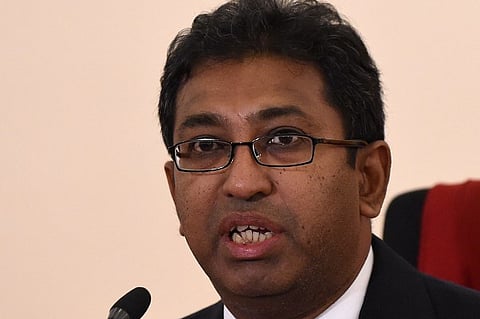

COLOMBO: The UN Human Rights Council (UNHRC) on Thursday unanimously gave Sri Lanka two years’ extension to implement the September 2015 resolution on ethnic reconciliation and accountability
for alleged war crimes.
As per the new timetable, the High Commissioner for Human Rights would give a written update to the council at its 37 th session in March 2018, and a comprehensive report at the 40 th session in March 2019.
Among other things, Resolution 30/1 of September 2015, called for the establishment of a judicial mechanism having foreign as well as Sri Lankan judges and prosecutors. Though Sri Lanka had co-sponsored that resolution as well as Thursday’s follow up, it has not agreed to have a hybrid court with foreign judges also.
Making this clear after the resolution was passed on Thursday, the Sri Lankan representative Dr.Harsha de Silva that Sri Lanka is striving “to establish a Sri Lankan Government-led processes with international assistance, engagement and support.”
He made no mention of a hybrid court with foreign judges, though the High Commissioner for Human Rights, Prince Zeid and the US representative William J.Mozdzierz had stressed the need for it. Before the resolution was passed, de Silva said that Sri Lanka would accept “foreign expertise” not foreign judges.
Therefore Sri Lanka gets two years’ extension to implement resolution 30/1 passed in September 2015.